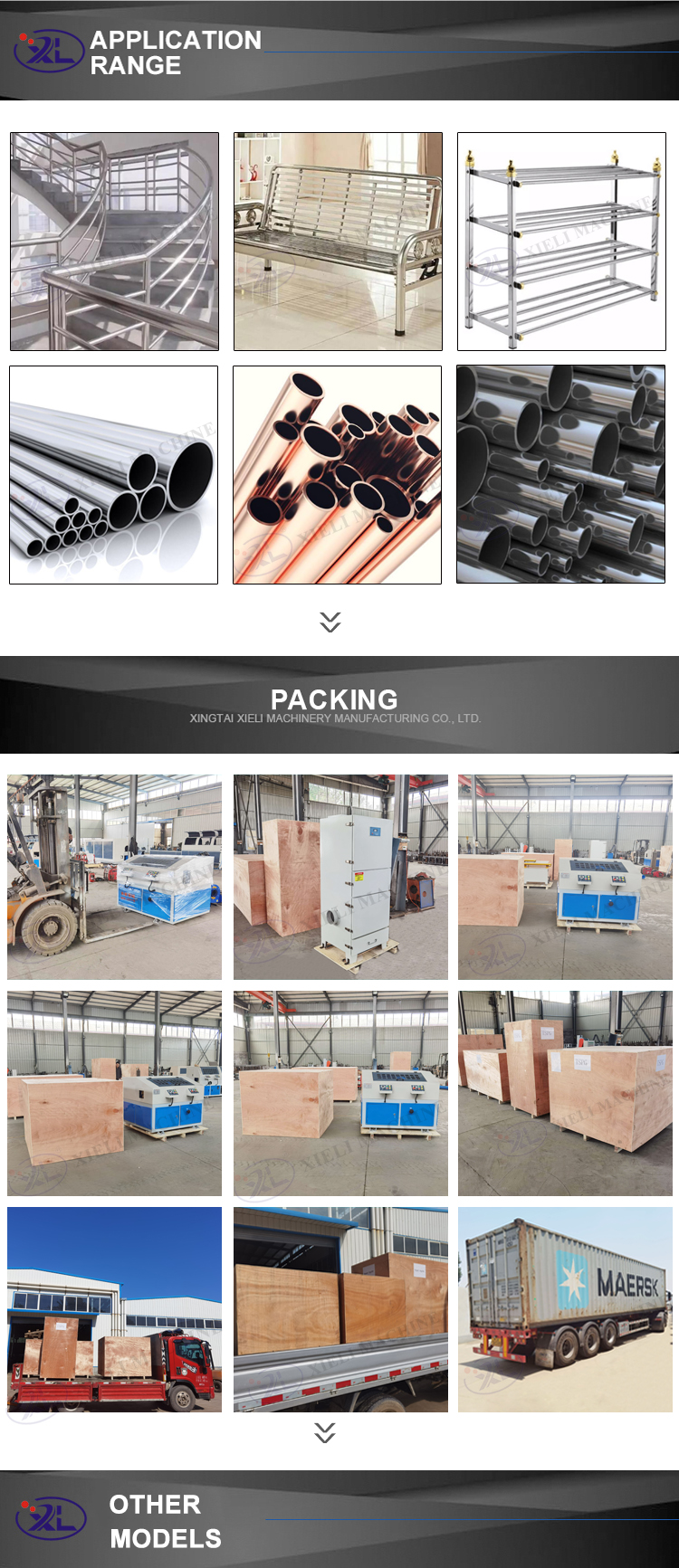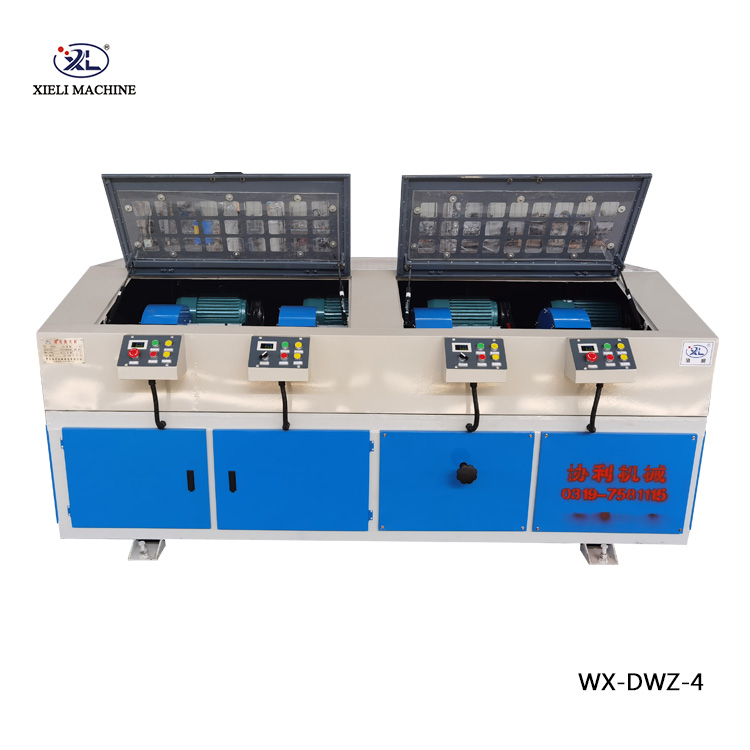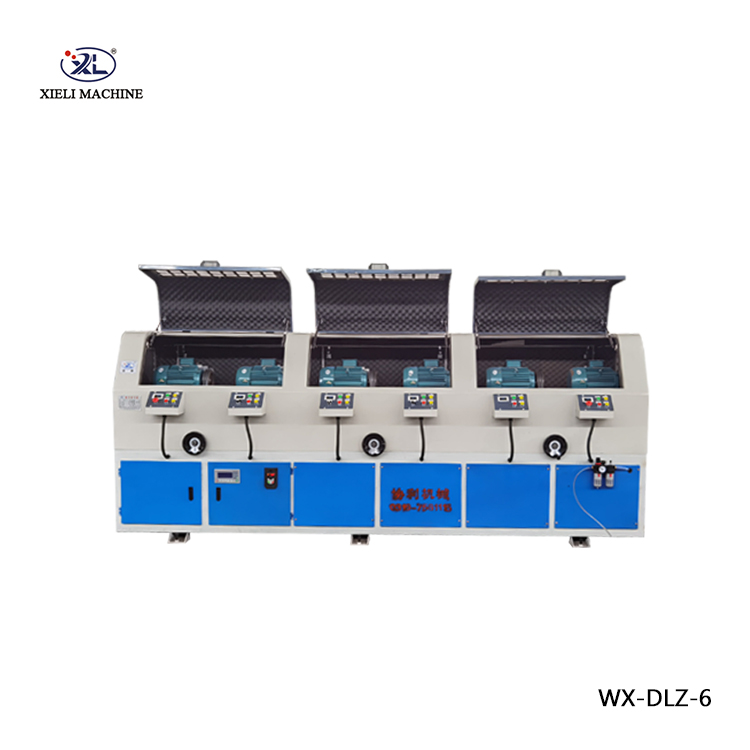Round Pipe Polishing Machine Enhancing Metal Finishing Efficiency
In the world of metal manufacturing and fabrication, maintaining the highest standards for product quality and finish is paramount. One of the critical steps in achieving excellent quality in metalworking is the polishing process. A round pipe polishing machine plays an essential role in this domain, specifically designed to enhance the aesthetic and functional aspects of metal pipes. This article delves into the importance, functionality, and advancements in technology pertaining to round pipe polishing machines.
Importance of Pipe Polishing
Metal pipes, especially those used in industries such as plumbing, automotive, and construction, often require a polished finish to ensure both visual appeal and practical functionality. Polishing not only improves appearance but also helps in corrosion resistance, cleaning, and reducing surface imperfections. A well-polished pipe can provide smoother fluid flow with less turbulence, which is essential in applications like hydraulic systems and exhaust systems.
Functionality of Round Pipe Polishing Machines
Round pipe polishing machines are specifically engineered to handle tubular materials, allowing for both internal and external polishing of pipes. Their design accommodates various pipe sizes and materials, making them versatile tools in manufacturing plants. The primary function of these machines is to remove oxides, rust, and any surface imperfections, leaving a bright, smooth finish.
Typically, a round pipe polishing machine employs rotary wheels or brushes, often made from non-woven materials or specialized abrasives, to effectively smooth the pipe surface. These machines can operate at varying speeds and pressures, giving operators greater control over the polishing process, ensuring that different materials and finishes can be accommodated.
Types of Round Pipe Polishing Machines
There are several types of machines available for polishing round pipes, including
round pipe polishing machine

1. Belt Polishers These machines utilize abrasive belts that wrap around pulleys, effectively removing surface imperfections as the pipe is fed through. They are particularly effective for achieving a uniform finish on longer pipes.
2. Barrel Polishers In barrel polishing, multiple pipes can be polished simultaneously using a rotating barrel filled with polishing media. This is a great option for small diameter pipes, providing consistency and reducing the labor involved.
3. Robotic Polishers The advancement of automation has led to the development of robotic polishing solutions. These machines can precisely control the polishing process, allowing for enhanced efficiency and reducing the risk of human error.
4. Handheld Polishers For smaller operations or detailed work, handheld polishing tools can be incredibly useful. These provide flexibility and ease of use for intricate polishing tasks.
Technological Advancements
Recent advancements in technology have led to significant improvements in round pipe polishing machines. Enhanced automation capabilities allow for faster production times and improved consistency in finishes. Additionally, the use of sensors and computer programming can optimize the polishing process, monitoring variables such as pressure and speed in real time.
Furthermore, innovations in abrasive materials have made polishing more efficient. Modern abrasives can achieve the same or better results in less time, minimizing wear and tear on the machines and reducing overall operational costs.
Conclusion
In summary, round pipe polishing machines are indispensable in ensuring the smooth, shiny, and rust-free finishes required in many industries. Their ability to improve both the aesthetic and functional performance of metal pipes cannot be understated. With ongoing technological advancements, these machines are likely to become even more efficient and effective, helping manufacturers meet growing demands for high-quality metal products. Investing in a quality round pipe polishing machine is an essential step for any business looking to enhance its productivity and maintain standards in metal finishing. As the industries continue to evolve, so too will the technologies and processes that ensure the highest quality outcomes.





